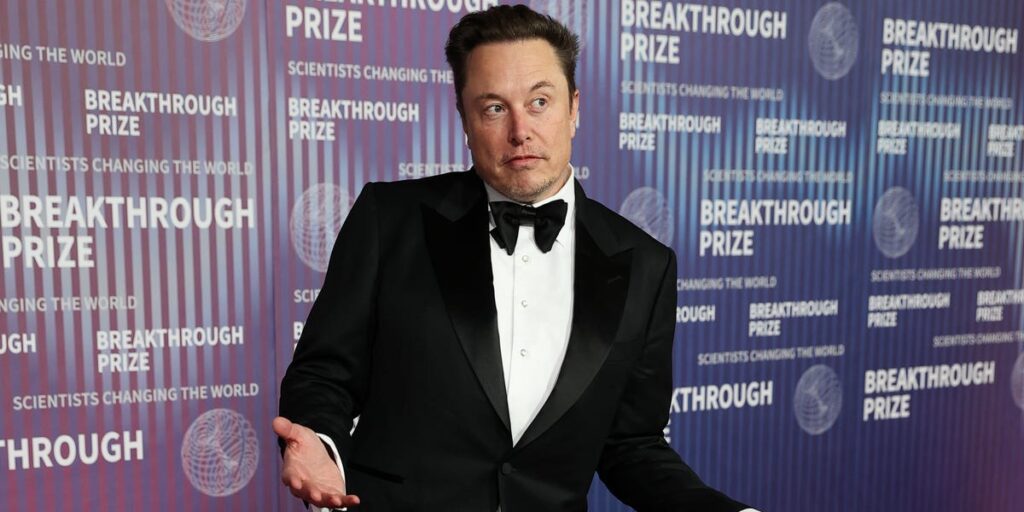Grok is being compared to OpenAI’s ChatGPT or even Meta’s new AI ad tools that can write digital copy and create imagery for online ad campaigns, according to two people in advertising who have heard X pitches and a video from X for advertisers seen by Business Insider.
Grok, part of Xai, cannot create imagery, and one of the advertising sources described its ability to answer prompts and create ad copy as, “basic” and ultimately unhelpful for experienced social or brand managers. Grok’s responses are limited to writing text for X posts that can be run as ads on the platform.
While many advertisers are not opposed to using AI in their work, one big issue with Grok is that the chatbot was trained explicitly to be “sarcastic” and flippant in tone, and even to curse in its responses to user queries.
When it launched late last year, Elon Musk said Grok was “based & loves sarcasm” and designed to be the antithesis of what he refers to as “woke,” which is typically used by political conservatives to describe social justice and inclusion efforts. Both sources noted that the typical brand looking to place ads on a digital platform like X does not want copy that is crude, sardonic, or intentionally ignorant of modern social mores.
“What advertiser or brand would want Grok writing for them?” one asked. The other referred to X employees pushing Grok as a “desperate” move by a company that no longer has broad appeal for brands.
“I can say this honestly: X isn’t even mentioned as an option for a single one of our clients,” one of the people said. “It was never a first choice, but it used to be always mentioned.”
Grok has two modes, “fun” and “regular,” with the latter set to respond in a more straightforward manner. In a video presentation seen by BI, an example is shown of Grok responding to a prompt asking for X posts for a flower shop in New York City. Its first suggestion for ad text starts with “Spring has sprung in NYC!”
A representative of X did not respond to an email seeking comment.
Musk acquired the platform as Twitter in late 2022 and has since struggled to keep users and advertisers, through which Twitter made the vast majority of its revenue. That year, although Musk took Twitter by surprise by first attempting a hostile takeover and then agreeing to acquire the platform for $44 billion, then fighting for months to get out of the deal, the platform made roughly $4 billion in ad revenue. That number fell in 2023 by about half, according to Bloomberg.
Linda Yaccarino arrived as CEO a year ago to run advertising, while Musk continued to run almost everything else at X. The launch of things like live video and an appeal to more right-wing conservative influencers and personalities has not done much to appeal to advertisers.
After Disney and other major brands stopped advertising on the platform, given a continual rise in hate speech on the platform and Musk’s own support and bolstering of racist propaganda and conspiracy theories, Musk, at a conference, publicly told advertisers to “go fuck yourself” for leaving X.
Now, X is trying to appeal to small and medium-sized businesses to advertise on the platform as large advertisers, previously the bulk of Twitter’s business, have yet to return. Meta has dominated this segment of the ad marketplace where most businesses of this size choose to spend their ad budgets. Digital ad spend has been climbing since last year, and companies like Meta and Google have seen their digital ads-based businesses soar again. X is currently offering all advertisers a $200 discount on any ad buy.
Are you a tech employee or someone with a tip or insight to share? Contact Kali Hays at khays@businessinsider.com or on secure messaging app Signal at 949-280-0267. Reach out using a non-work device.
Read the full article here


